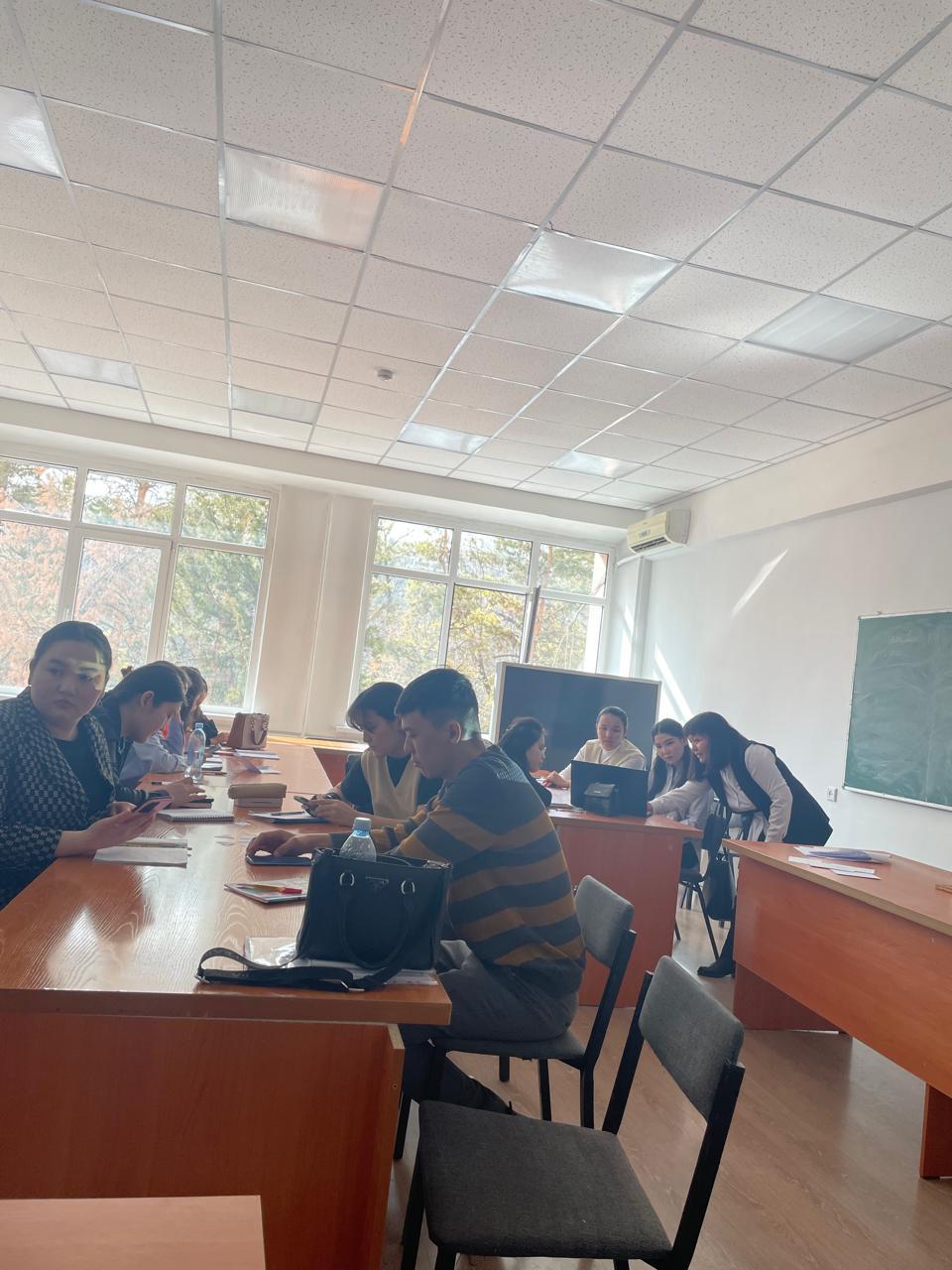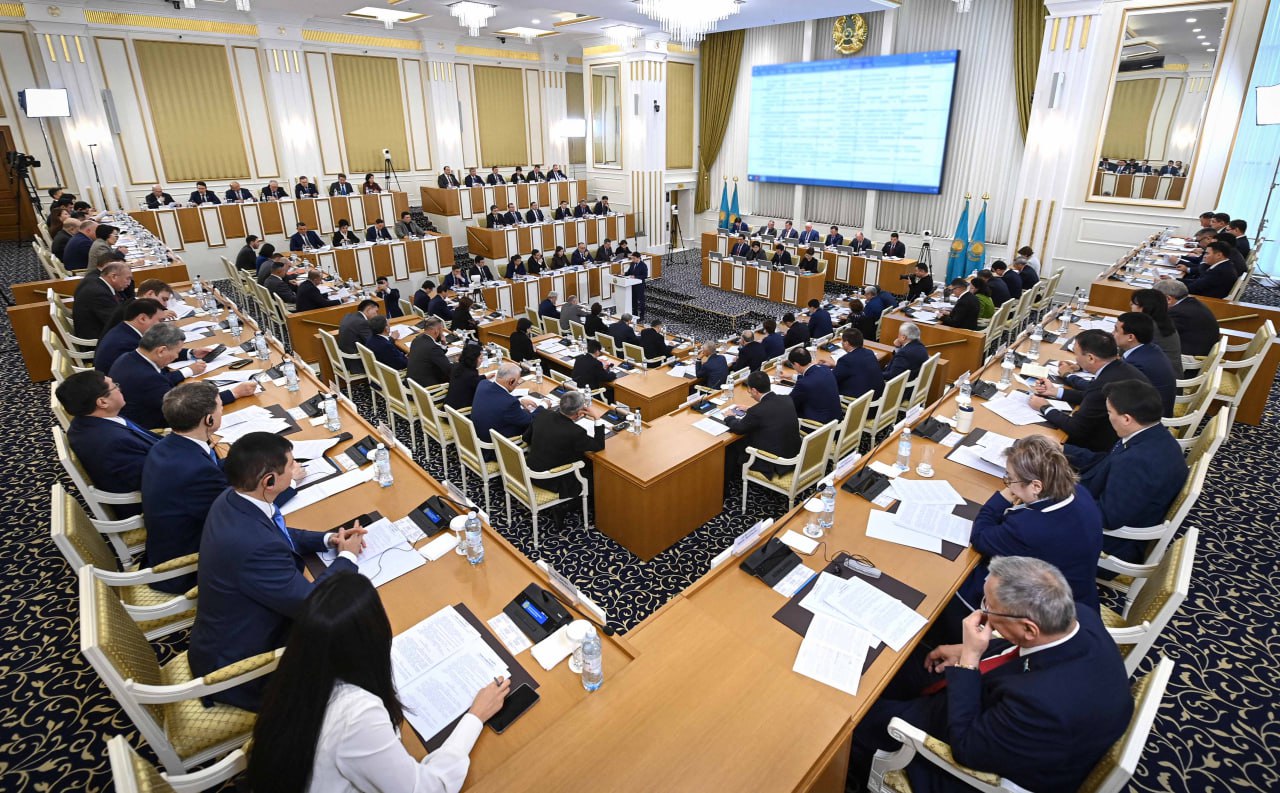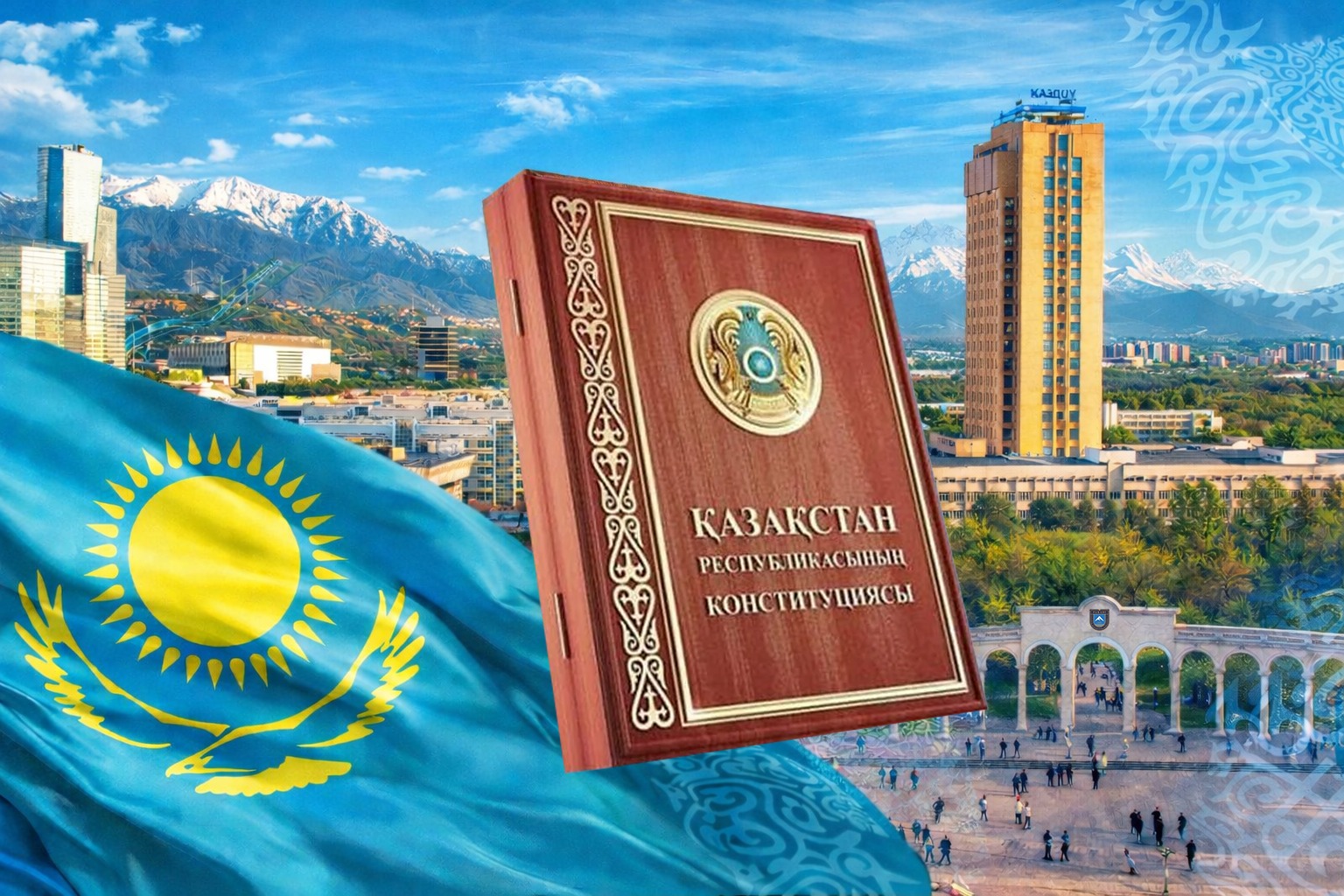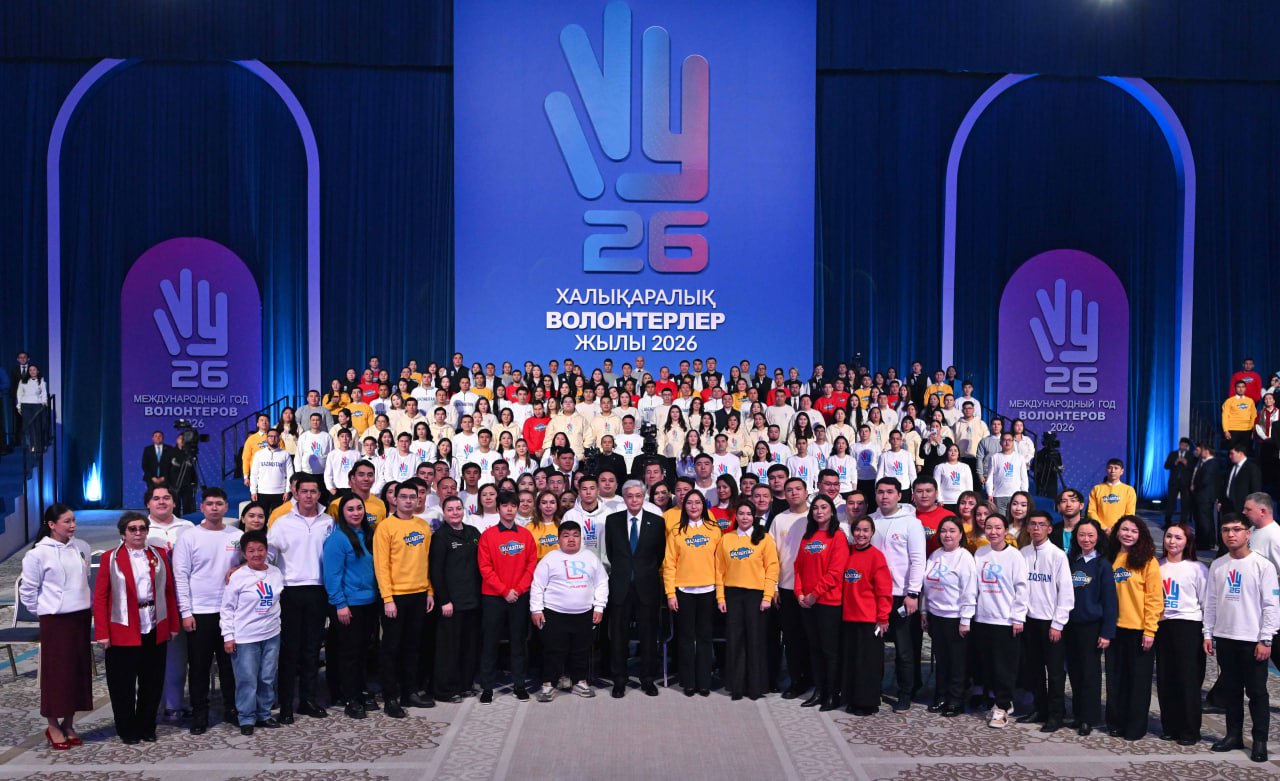"Thematic and Ideological Analysis of K. Zhumaliev and A. Nurkatov's Research".

On February 25, 2025, a demo lesson was held at the Department of Kazakh Literature and Literary Theory of the Faculty of Philology under the guidance of Senior Lecturer A.K. Sargeltaeva. The lesson was conducted by the 1st-year PhD student of "8D02304-Literary Studies" major, G. Utepbergenova, within the framework of Sustainable Development Goal (SDG 4). The lesson was conducted on the subject "Abai and His Literary School". The lesson topic was "Thematic and Ideological Analysis of K. Zhumaliev and A. Nurkatov's Research". Its aim was to study the scientific works of K. Zhumaliev and A. Nurkatov in literary studies, to determine the thematic and ideological features of their research, to analyze their contribution to Kazakh literature, and to develop students' skills in literary analysis and scholarly reasoning. The lesson was conducted in the form of a competition, consisting of four stages: "Báyge". "Doda", "Video Question","SWOT Analysis".
The organizational stage included the students’ teamwork using the "CAST LOTS" platform. In the first stage ("Báyge"), they completed tasks based on Abai’s poems using the "TARSIA" method (assembling puzzles in groups). In the second stage ("Doda"), the students selected cells on the screen through the Wordwall platform and answered the questions related to the research of K. Zhumaliev and A. Nurkatov. In the third stage ("Video Question"), Artificial Intelligence posed questions to students on behalf of K. Zhumaliev and A. Nurkatov regarding their academic work. In the fourth stage ("SWOT Analysis"), they analyzed the scholars' research from four perspectives: Strengths, Weaknesses, Opportunities, Threats. Each stage was assessed using a score-based system, and at the end of the lesson, an overall evaluation was given. In the concluding part, the students answered the question: "If you were a scholar, whose work would you take as a foundation? Why?". For feedback, the "Three Words" method was used. PhD G. Utepbergenova effectively organized the lesson, and the students actively participated in discussions and tasks.


